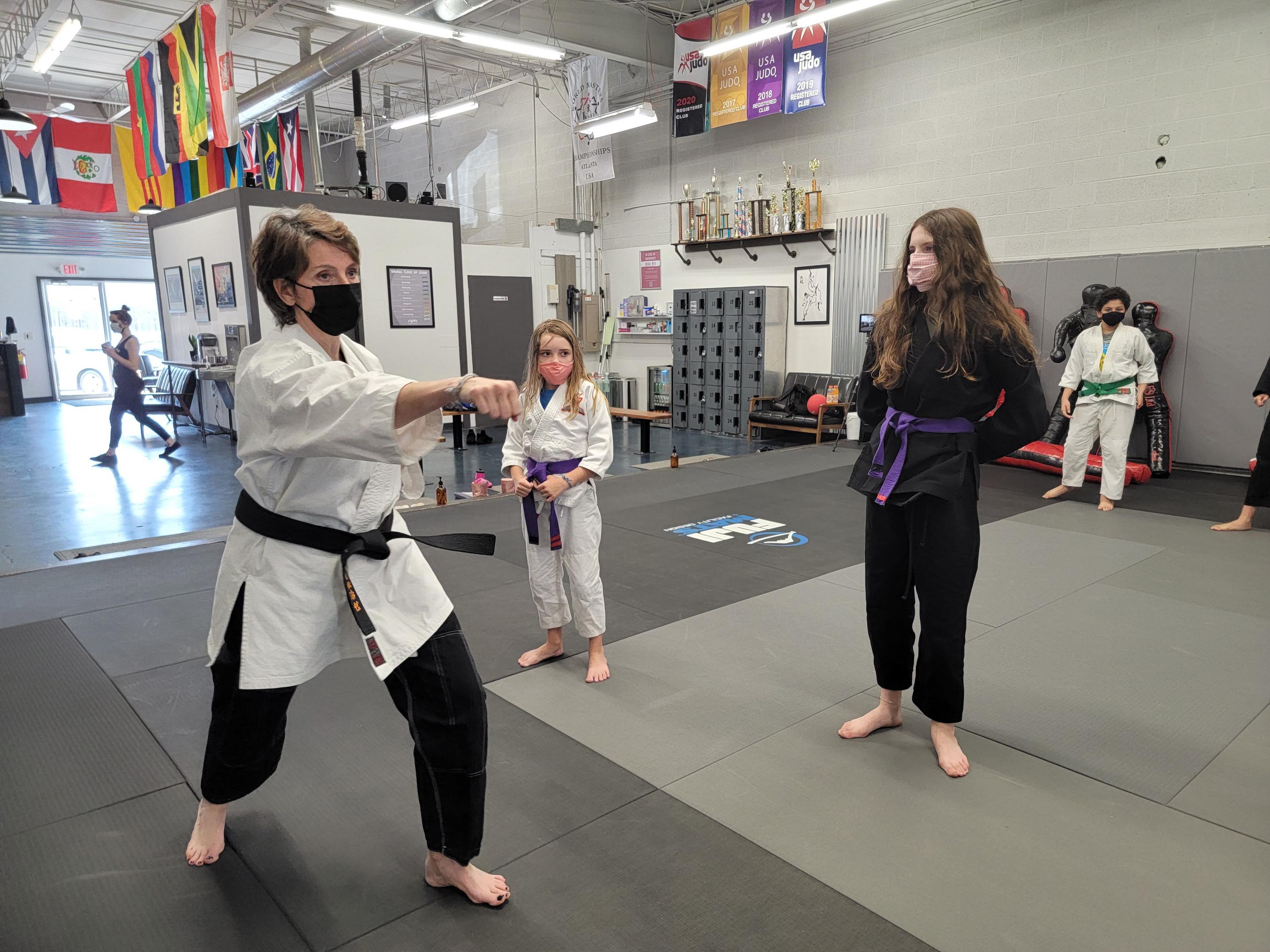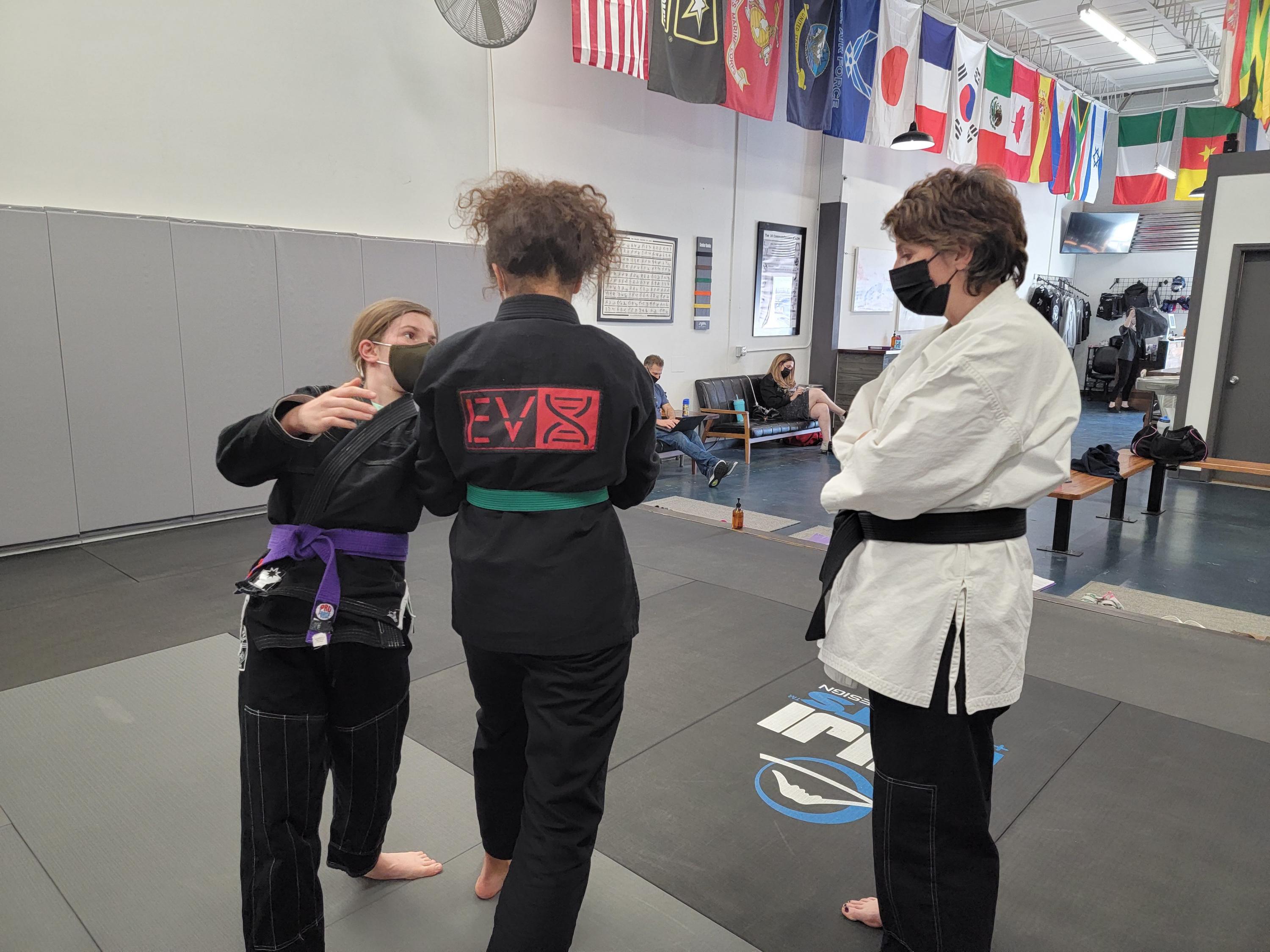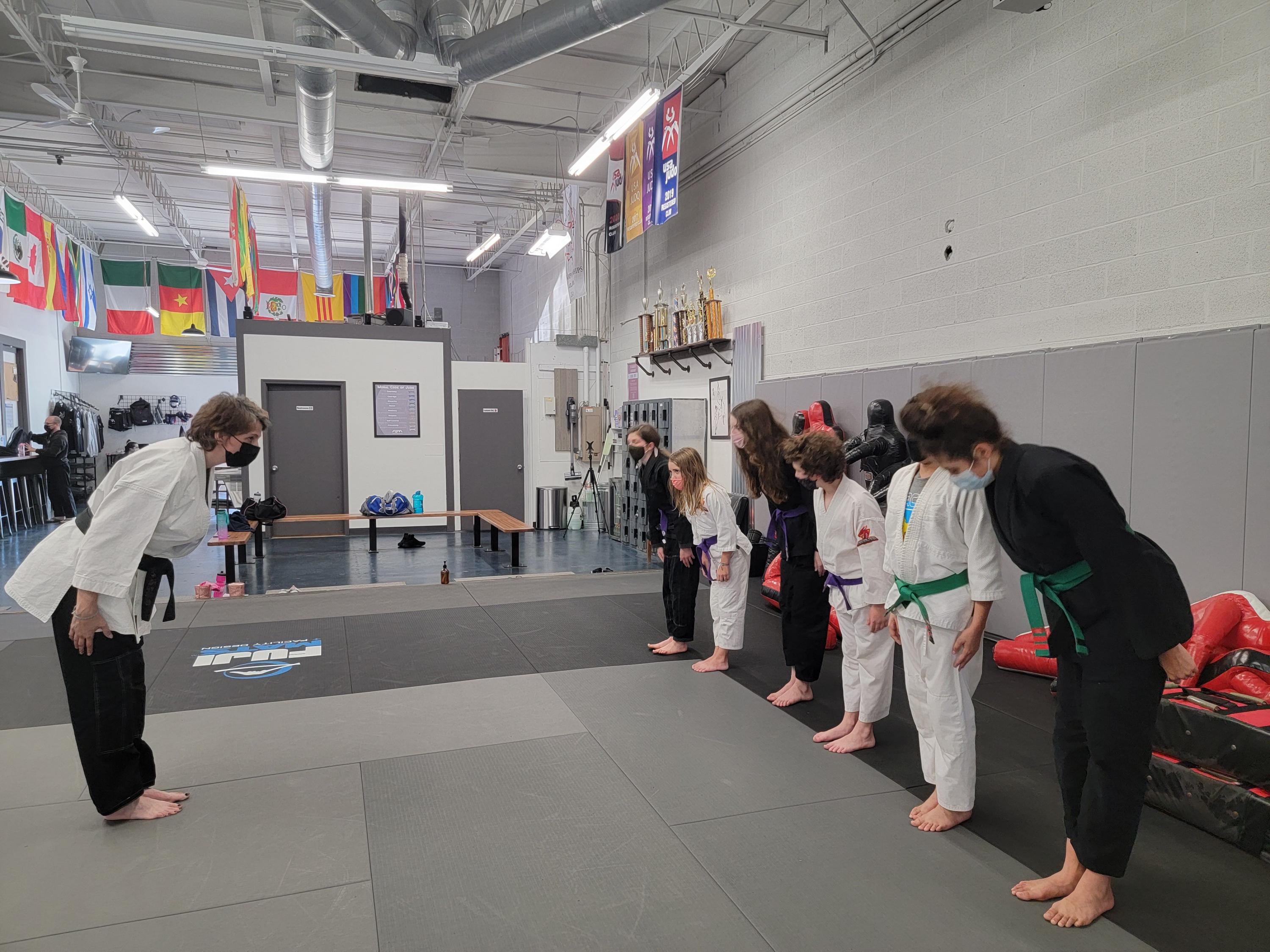
Apr 28, 2021 - Atlanta, GA
When she was growing up in France, Pamela Pollet once passed out during her middle school’s physical education class. Doctors diagnosed that her heart rhythms and breathing were not in sync. “My general practitioner recommended that I try an activity that taught you how to control your breathing, like karate,” Pollet recalls.
It didn’t take long for martial arts “to become an integral part of my life,” says Pollet, who serves as a senior academic professional for the School of Chemistry and Biochemistry. Then, she not only found the right balance between heart rhythm and the breath, but also discovered that the traditional form of karate known as Shotokan — where self-control is valued as much as strength and speed — came as naturally to her as, well, breathing.
Pollet earned a black belt in Shotokan, competed nationally and had the opportunity to train with France’s national kumite martial arts team. Once in graduate school, however, she began to focus on a new calling — academics — so the karate competitions ended.
The life lessons of her martial arts training, however, remained close as she climbed the academic ladder to her current role at Georgia Tech. Now, Pollet wants to help Georgia Tech students find that same level of balance between their studies and lives outside of school.
She points out that the pressure to perform is high, and that higher ed’s rhythm is fast and demanding, especially at a campus like Georgia Tech. It requires dedication, and there can be setbacks that can attack and erode self-esteem.
Pollet believes martial arts can be a meaningful answer to help students who may be questioning their abilities to keep up with peers.
“Many first year students were at the top of their high schools,” she notes. “It can be a shock to get to Georgia Tech, when everyone is talented and brilliant. It is not unusual for students to say, ‘I am a failure,’ or ‘I am not good enough,’ because they are not in the top five percent, or did not earn an ‘A’ on a given course. I do not agree. This is about reassessing, trying new strategies, adapting, evolving, refining, and reworking. It may not work during the first try — but try anyway and give it your best. This is martial arts teaching! And, it is resilience.”
From chemistry solutions to karate sparring
Pollet practices what she preaches. She stays busy at Georgia Tech between teaching duties — core courses, undergraduate research, a vertically integrated projects (VIP) course on flow chemistry — and her research on smart solvents for chemical synthesis and separation, and flow chemistry for sustainable processes.
Yet at 5:30 p.m. every Monday, Wednesday, and Friday, Pollet dons a Karategi, the familiar “gi” uniform for karate practice and competition, and co-instructs martial arts and mindfulness techniques to students ages 5 to 17 at Evolution X Martial Arts (EVX) in northeast Atlanta. She likes the dojo’s emphasis on balancing the mental side of martial arts with its physical demands.
“We utilize cognitive behavioral and coaching psychology to assist in making skills stick for students,” chief instructor Shihan Moree says of EVX, where Pollet has practiced and co-instructed for the last two years. “For example, EVX children’s class has an additional focus on developing mental health and emotional intelligence through monthly cognitive behavioral therapy concepts like mindfulness, self-talk, and gratitude.”
Pollet has been a longtime advocate of the connection between safety and mindfulness in the teaching of martial arts. “It develops the skills of coping, and training to respond rather than react — that we know is so important on our campus.”
As a faculty member, Pollet sees her investment in martial arts teaching as a form of outreach in Georgia Tech’s Serve-Learn-Sustain mission.
For her, the “serve” part involves teaching healthy coping strategies for student life. Being a college student can be stressful enough without adding a pandemic to the mix, and Pollet notes that the isolation and stress caused by Covid-19 bears watching among those attending the Institute, which offers a number of mental health and well-being resources, along with a new student referral system for faculty and staff to help connect students to campus resources.
“Martial arts have equipped me with resources to help manage and respond to hard, painful situations, from both the physical and psychological point of views,” Pollet points out.
She also wants to use the Serve-Learn-Sustain mission to help empower those students, faculty, and staff throughout the Georgia Tech community— and to connect and empower individuals of all ages to join in meaningful practices of self care and service to others.
In the spirit, on May 15 Pollet will participate to EVX self-defense workshop from 2-3:30 p.m. at the school on Faulkner Road. A $10 donation is requested for the workshop, with all proceeds donated to the Asian American Advancing Justice organization. To learn more and get involved, email Evolution X Martial Arts here.


